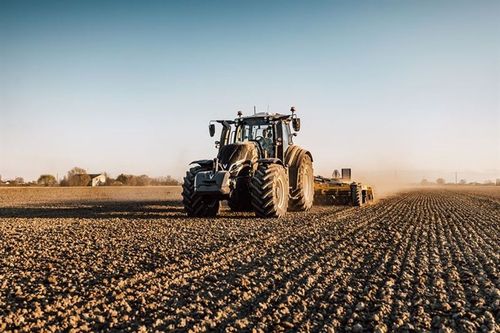Neste MY Renewable Diesel helps Valtra save over 15,000 tons of GHG emissions

SOURCE: Valtra
June 5, 2024
BY Neste Corp.
Finnish Valtra, a globally operating tractor manufacturer belonging to AGCO Corp., has reached a significant milestone by having used altogether 5 million liters of Neste MY Renewable Diesel as a factory-fill fuel as well as in testing and in its factory forklift trucks at its Suolahti factory in Finland. By replacing fossil fuel with Neste’s renewable diesel, Valtra has prevented over 15 000 tons of greenhouse gas emissions from entering the atmosphere. The amount is equivalent to the greenhouse gas emissions resulting from the use of fossil fuel in a Valtra T Series tractor continuously for 390,000 hours at 30 to 40% engine load, when all emissions over the life cycle of the fuel are taken into account.*
Neste and Valtra have collaborated since 2017, when Valtra became the first tractor factory in the world to fill its new tractors with Neste MY Renewable Diesel that reduces greenhouse gas emissions by up to 75% or up to 95%** over the fuel’s life cycle when compared to fossil diesel.
Advertisement
Advertisement
Neste MY Renewable Diesel is a fuel made from 100% renewable raw materials, such as used cooking oil and animal fat from food industry waste. The new Valtra tractors, powered by Neste MY Renewable Diesel, are exported from Suolahti, Finland to over 75 countries globally.
“At Valtra, we are committed to sustainability, and among our initiatives, we work on emission reduction, energy consumption, waste management and the efficient use of resources. With our decision to switch to Neste MY Renewable Diesel as the first fill fuel, we have reduced our own emissions and shown our customers, tens of thousands of farmers globally, that their tractors can run on renewable diesel. Also older Valtra tractors run well on renewable diesel,” says Mikko Lehikoinen, Managing Director, Valtra EME.
Advertisement
Advertisement
“Neste’s target is to help its customers reduce their greenhouse gas emissions by at least 20 million tons annually by 2030. I’m proud of our long-standing partnership and Neste MY Renewable Diesel supporting Valtra’s emission reduction targets, which also helps increase the awareness of Neste MY Renewable Diesel as a lower-emission solution among farmers. Recently, we expanded our collaboration when we joined the Finnish Future Farm project, a three-year EU-funded program taking place at the bioeconomy campus in Saarijärvi, Finland. The program enables the use and development of solutions that minimize greenhouse gas emissions and improve economic profitability of arable farming of grass and grain. When combating climate change, both already existing and new solutions are needed,” says Joni Pihlström, Vice President, Marketing & Services, Neste.
*) Calculation method complies with the EU Renewable Energy Directive II (EU) 2018/2001
**) The GHG emission reduction varies depending on the region-specific legislation that provides the methodology for the calculations (e.g. EU RED II 2018/2001/EU for Europe and US California LCFS for the US), and the raw material mix used to manufacture the product for each market.
Related Stories
CoBank’s latest quarterly research report, released July 10, highlights current uncertainty around the implementation of three biofuel policies, RFS RVOs, small refinery exemptions (SREs) and the 45Z clean fuels production tax credit.
The U.S. Energy Information Administration maintained its forecast for 2025 and 2026 biodiesel, renewable diesel and sustainable aviation fuel (SAF) production in its latest Short-Term Energy Outlook, released July 8.
XCF Global Inc. on July 10 shared its strategic plan to invest close to $1 billion in developing a network of SAF production facilities, expanding its U.S. footprint, and advancing its international growth strategy.
U.S. fuel ethanol capacity fell slightly in April, while biodiesel and renewable diesel capacity held steady, according to data released by the U.S. EIA on June 30. Feedstock consumption was down when compared to the previous month.
XCF Global Inc. on July 8 provided a production update on its flagship New Rise Reno facility, underscoring that the plant has successfully produced SAF, renewable diesel, and renewable naphtha during its initial ramp-up.
Upcoming Events










